“Por escrito” Lucha Corpi (LC) entrevista a Graciela Brauer Ramírez (GBR), Catedrática jubilada de la Universidad Estatal de California en Sacramento. Poeta y narradora chicana, y trabajadora cultural incansable. Miembro de “Escritores del Nuevo Sol” en el Valle de Sacramento y de “Círculo de poetas & Writers” en la Bahía de San Francisco, con sede en Oakland. AZTLÁN – El lugar de las garzas LC: Querida Graciela, cómo se ve claramente, en la portada de tu libro están estampadas las garzas, aves que normalmente habitan a orillas de los ríos en California y en México: Algunos de los ríos más caudalosos se encuentran en el sur de México y precisamente en el estado de Veracruz y cerca de la Ciudad de México de donde eres originaria. Me fascinó ver que tu obra comienza con una descripción del Río Americano (the American River) que atraviesa de lado a lado la Cd. de Sacramento, capital del estado de California. Según la leyenda indígena mexicana, AZTLÁN era el lugar de origen de las varias tribus pre-colombinas, las que poblaban el continente de América, desde Alaska y Canadá hasta Tierra del Fuego en Sudamérica. A primera vista se podría también decir que EDUCACIÓN: Una Épica Chicana de la catedrática, poeta y narradora, Graciela Brauer Ramírez, es un libro de texto histórico. Ofrece una visión y cronología histórico-política de acontecimientos que se suscitaron en la Cd. de Sacramento, capital del estado de California, durante las décadas de 1960 a 1980. Al mismo tiempo, ofrece una vista panorámica del movimiento socio-político y pro-derechos civiles del pueblo México-americano en EE.UU., es decir de la población que se autodefine políticamente como chicanos. De una manera más general, bosqueja también el impacto de los logros de esta población, desde entonces hasta la fecha. Desde el punto de vista literario sigue las reglas de una epopeya clásica, es decir como lo fueran la Odisea o Ilíada en la antigüedad. Es un relato en verso y trata de las hazañas de héroes en tiempos de guerra y en defensa de su pueblo, su historia y cultura. Más aún, es la infra-historia de una familia californiana, con fuertes lazos culturales, literarios e históricos, con México y el sudoeste de Estados Unidos. Gracias. Graciela. Lucha Corpi Entrevista y plática: Lucha Corpi (LC) y Graciela Brauer Ramírez (GBR) en conversación. Influencias: En familia o comunitarias: LC: Tu obra culturalmente es parte de una tradición oral, pero lo es también de la literaria. Es en verdad, Una Épica Chicana, y una obra monumental. ¡Enhorabuena, Graciela! Ahora, cuéntanos un poco sobre tu niñez y adolescencia en familia. Sabemos que tu padre fue de gran influencia en ti, quien estimuló tu sed intelectual por el conocimiento y la lectura. Aprendiste a leer a los cuatro años. Entiendo que tu convivencia con otros parientes, en ambos lados, también fue muy importante. En familia, aparte de tu papá y mamá, ¿Quiénes más fueron de gran influencia en ti durante tu niñez? GBR: Como digo en mi libro, Una épica chicana, por las noches, en familia, nos juntábamos en el patio y cada uno decía poesías o contaba historias. Por ejemplo, a mi tío Homero le gustaban las historias del mar y de barcos. Después fue marinero. Mi tío Sergio siempre nos contaba la misma historia sólo le cambiaba los nombres de los personajes. A mí me subían en una silla y recitaba: “Mamá, soy Paquito, no haré travesuras…” Y también una que dice: “Guadalupe la Chinaca va en busca de Pantaleón su marido…” Dado que a los 2 o 3 años yo no podía todavía hablar bien, recitaba este verso a mi manera: “aupe anaca busca a neon maido…” Mi tía Elena, aun cuando ya estaba yo grande, se burlaba de mí imitándome, pues a esa edad temprana no podía yo hablar claro, pero, según yo, ya recitaba. También mi tía me decía que cuando terminaba yo les pedía aplausos al “púbico” (el público). LC: Me haces reír. Muy divertido. Ya entrando a la secundaria, ¿seguiste recitando poemas en público? GBR: Claro que sí. Ya de estudiante, en la secundaria, recitaba en concursos y en uno de ellos gané el primer premio al recitar de memoria el poema “Los Motivos del Lobo” de Rubén Darío el gran poeta de Nicaragua. Hasta la fecha, ya en mi vejez, aún recuerdo todo este poema tan largo. LC: Entonces, en cuanto a los lugares que fueron importantes en tu desarrollo durante tus años tempranos, sabemos que naciste y viviste en la Ciudad de México y que sufriste los calores y el bochorno del trópico en el puerto de Veracruz. En el prólogo de Educación: Una Épica Chicana, JoAnn Anglin, gran poeta y narradora, a quien también tengo el gusto y la honra de conocer, nos da algunos datos personales tuyos, pero bastante esquemáticos. LC: Si te es posible, cuéntanos un poco de ti, de tu vida personal antes de unirte al cuerpo docente de la Universidad Estatal de California (California State University at Sacramento-CSUS). GBR: Las gentes que tuvieron más influencia en mi infancia fueron mi papá y mi tía abuela Juanita. El me introdujo a la lectura, al grado de que cuando fui al kínder ya había leído varios libros de cuentos que él siempre me compraba. Mi tía abuela Juanita tenía una tienda de abarrotes a media cuadra de nuestro apartamento. Ella tenía su recámara arriba de la tienda. A veces ella me cuidaba o cuando iba a la tienda inmediatamente subía a su recámara pues ahí tenía muchos libros. Ahí leí: Corazón Diario de un Niño, Las Mil y Una Noches y muchas otras obras que aún viven en mi mente y que me han ayudado a sobrevivir. Un día mi tía me sorprendió mucho cuando me regaló estos dos libros y algunos más. También mi papá. Él era militar, y por algunas horas, también valuador en la mayor casa de empeño controlada por el gobierno. A veces tenían subastas y la mercancía que quedaba la repartían entre los trabajadores. Esta era generalmente de libros, los cuales él traía al apartamento. Entre esos libros leí, con ayuda de adultos, La Vuelta al Mundo en Ochenta Días, El Jorobado de Nuestra Señora de París y muchos más. Fui muy afortunada. LC: Nos has contado que debido al trabajo de tu papá, quién era militar, viviste en diferentes lugares. ¿Cómo afectó el pasar tu infancia y adolescencia en comunidades tan diferentes una de la otra? GBR: Primero, era una bebé y mientras que las mismas personas me cuidaran, no había problema. Después, cuando contaba con cuatro años, mi papá me ponía en el tren los viernes por la noche y mi abuelito me recogía en el puerto de Veracruz en la mañana del sábado. El regreso era viaje opuesto, por supuesto, de domingo en la noche a lunes por la mañana. También pasaba todas las vacaciones en la costa del Golfo de México, que era la costa veracruzana. Vivir en el puerto de Veracruz fue para mí una experiencia muy afortunada pues mi abuelito era una persona muy educada al haber estudiado en el seminario; había leído mucho. Con él aprendí bastante. También en Veracruz vivían mis tíos quienes eran muy adeptos a las poesías. Mi tío Carlos, por ejemplo, sabía muchas de ellas de memoria. En las noches nos recitaba versos de sus autores favoritos como Díaz Mirón, poeta veracruzano. Mi tía Estela recitaba en las escuelas. Aún recuerdo una de sus poesías favoritas que dice: “…espera la caída de las hojas.” Mi abuelito y su hijo mayor trabajaban en el ferrocarril me conocían y me querían bastante. A menudo, ellos me llevaban de viaje. Durante mis viajes la tripulación del ferrocarril me cuidaba. LC: Cuéntanos también de tu familia materna y de tu educación formal y adolescencia GBR: Cursé la primaria en El Colegio de San Ignacio de Loyola comúnmente conocido como Colegio de las Vizcaínas, una escuela católica en la Ciudad de México. Mis padres se divorciaron cuando yo tenía menos de un año. Mi papá tomó la responsabilidad de criarme. Él era militar así es que yo crecí regimentada, cosa que siempre le he agradecido pues aprendí disciplina, algo que me ha servido toda mi vida, y que él hizo con mucho amor. A los 15 años me fui a vivir con mi mamá. Ella era una famosa cantante de música ranchera. Mi vida con ella era excitante pues me llevaba a los teatros y estaciones de radio en donde conocí artistas famosos de aquella época. Por otro lado, ella era una persona muy extrovertida y se impacientaba mucho conmigo por ser yo sumamente introvertida. Con ella viajé en sus giras por muchos estados de México y lugares en los Estados Unidos como las ciudades fronterizas de El Paso, Texas y San Diego, California, además de Los Ángeles en California, entre otras. Desgraciadamente mi mamá y yo éramos demasiado diferentes. Ella era una feminista que a los 40 años se hizo torera aficionada; yo vivía dentro de los libros. Con mis padres crecí en dos mundos completamente opuestos. Sin embargo, en ambos mundos, todas mis experiencias fueron muy buenas. LC: En esta entrevista quiero hacer resaltar no sólo tu trayectoria poética-literaria sino también tu participación en el movimiento pro-derechos civiles y humanos del pueblo chicano en Estados Unidos. Al leer tu obra, me doy cuenta que tú fuiste testigo y participante en muchos de los acontecimientos que describes en tu libro durante “el movimiento chicano”. Cuéntanos sobre esta importante época de tu vida. GBR: Mi participación en los primeros años de pertenecer al movimiento chicano, fue la siguiente: ayudaba en lo que podía como organizar eventos poéticos, así como los Simposios de Pensadores del Tercer Mundo y otros más. También ayudaba en sus funciones para recaudar fondos como ventas de pan dulce, tacos etc. Me daba de voluntaria para ayudar a organizaciones como CAMP (College Assistance Migrant Program) entre otras. También tuve en el barrio, en el Washington Neighborhood Center, un programa tutorial en el que llevaba estudiantes de la universidad a enseñar a los niños. Lo óptimo de mi participación fue cuando formulé y comencé a enseñar el curso “La Mujer Chicana” en el Departamento de Estudios Étnicos, de la Universidad Estatal de California en su campus de Sacramento-CSUS. El gran poeta y activista chicano, José Montoya, era catedrático en este mismo departamento. Después de haber recibido algunos reconocimientos por mi participación en el movimiento chicano, mi mayor orgullo llegó un día cuando José Montoya me llamó y me dijo: “Gracias, Graciela, porque nunca nos has dejado”. Este ha sido el mejor reconocimiento que he recibido en mi vida. José tenía razón. He creído siempre que es un derecho de todo ser humano tener acceso a la educación formal. Me uní al Movimiento Chicano Pro-derechos humanos y civiles. Para los chicanos, acceso a una buena educación era lo que más deseaban. Sentí como si un imán me atraía hacia ellos. También a José Montoya siempre le viviré agradecida. El organizaba programas y recitales de poesía en la universidad. Fue él quien me apoyó é invitó a leer mi obra poética en público, por primera vez en mi vida. Cómo recuerdo cuanto sufrí, y las ansias que me causó, pues tenía demasiado miedo de leer en público. Yo había leído en programas escolares pero nunca en programas en público en general. José lo notó y con sus palabras me animó mucho. Al fin, temblaba pero lo hice. La Poesía de Graciela B. Ramírez REBOZO Rebozo que humillado te escondías, mas con la revolución volviste altivo en los hombros de Frida** quien sin miedo te sacó de penumbras ensalzando los colores brillantes de tus hilos. Así volviste a colorear las fiestas adornando con gracia a las mujeres quienes ahora en cuerpos te lucían o zapateando en moños te enredaban. Rebozo que en los campos de batalla de la intemperie protegías a guerrilleras y en las noches cubriendo a los amantes creabas mundo privado en que chasquidos de besos resonaban en el aire y después el amor bajo de ti hacían porque quizá la luz del sol Ya no verían Rebozo, con tus hebras acaricias de las futuras madres sus vientres esponjados, entibiando matrices, dando calor a fetos, enlazando dos seres en comunión sagrada Cordón umbilical de madre y niño porque cuando ellas cargan, cual marsupias, a sus tiernos infantes, ellos saben que no hay peligro alguno porque tú con firmeza los sostienes. Y también con amor cubres los senos cuando el pequeño cual gatito tierno mama la tibia leche de su madre y arrullado con ritmos de latidos sueña envuelto en respiros melodiosos y despierta al sentir hondo suspiro y se ve reflejado en dulces ojos. **Nota Bene: Frida Kahlo volvió a hacer famoso el rebozo de seda mexicano. A este rebozo también se le conoce como Rebozo de seda de Santa María, el pequeño pueblo en el estado de San Luis Potosí, en donde se encuentran los telares de rebozos. Ahí mismo también se pueden ver los sembradíos de las plantas de las que se alimentan las orugas que el público en general conoce como “los gusanos de seda”. Frida también mostró el modo, arte y orgullo de portarlo el rebozo. Fue precisamente durante las décadas de los años sesenta y setenta que las mujeres chicanas, México-americanas y latinas volvieron una vez más a hacer legítimo el uso del rebozo, tanto el de algodón como el de seda. -LC Tlaloc There came a day when your gigantic statue was moved from its birth place to Chapultepec’s sacred emerald forest where hundreds of crickets sing for you the eternal welcoming song Slowly, so slowly 168 tons of stone moved through Tenochtitlan’s streets cradled in the specially-built trailer going slowly, So slowly. During the night, work crews disconnected and reconnected electrical wires needed because of your 23-foot height. Perhaps you laughed At all the attention From the multitudes After the 30-mile journey, came the huge explosion, like a Big Bang, embedding our memories back in our city recalling years of invasions, centuries of deep pain. But finally, the gift of spiritual Renaissance as you passed through the Zócalo, The Great Temple, El Templo Mayor. At that precise instant came the deluge, your fertility water, your life-giving water, your survival water, your baptismal water, your melting jade rain that poured over us running in force through our city washing us in blessings and forgiving waters through archeological sites, the burial homes of your ancestors the burial homes of our ancestors. Tláloc, the Great Tláloc: The eagle and the serpent Acknowledged you As the Lord of the Third Sun, As God of all Water. PINCELADAS Instantly becoming one With the new born moon And the eastern star All of a sudden Autumn smiles Reddish leaves Cosumnes River Witness in silence Courtship of cranes The broom Escapes from my hands Dishes Look at me with anger Only the pencil Calls me by my name Magic of Jazz Is for me Sensuality and Spirituality Interwoven Only the pencil Calls me by my name Rain, flamenco woman Dancer Stamping On the roof of my house. **CHICANOS Y LA LENGUA Esta es la historia de la gente… que nace o emigra en retroceso, a esas tierras que ancestros disfrutaron, a lugares viniendo de regreso, que ejércitos extraños conquistaron, sitio donde las grullas con su beso y su baile, colonias iniciaron. Esta es la gente que con ansia busca, un lugar en el sol, cosa muy justa. ... **EPIFANÍA CHICANA Aztlán renace, del chicano cuna su núcleo de las cuatro direcciones aurículas en Utah y Colorado ventrícula del sur en Arizona y otra en Nuevo México hechicero, Aztlán cuyas arterias cristalinas de estrellas salpicadas son Ríos Grande, Colorado y también el Sacramento. ... **LC: Estrofas de Educación: Una Epica Chicana, p. 3 y 24 GBR: Aquí estamos José Montoya y yo esperando una de las cuatro ceremonias pre-Colombinas en Sacramento (la de los niños, la de las jóvenes o Xilonen, la de los jóvenes y el Día de los Muertos). En los setenta José fue uno de los iniciadores de ellas y tuvo a su cargo el altar del norte o el de los viejitos. Yo empecé en el sagrado círculo como a principio de los ochenta y duré en la dirección del norte con José como 25 años o más que fueron inolvidables pues pasar más de 9 horas en compañía de José preparando el altar, marcar el círculo con polvo de maíz, mantener el fuego en el salmador, esperar al grupo que iba a recibir consejos y dárselos fue una de mis mejores experiencias. Con él y los Chicanos aprendí muchísimo. Generalmente leo con mi grupo “Escritores del Nuevo Sol”. Yo soy la que organizo los recitales poéticos en Sacramento. Nuestros programas son en lugares como “Sol Collective”, “Luna’s Café”, y “The Poetry Center”. Hace tiempo iba con mi grupo de escritores a leer en las ciudades de San Francisco, Stockton, Yuba City y otros lugares en California. También en ocasiones leo como parte del grupo al que también pertenezco “Círculo de Poetas & Writers” con base en Oakland, California y miembros en varias ciudades del norte de California. LC: ¿Cómo y dónde pueden los interesados conseguir el libro Educación: Una Épica Chicana?
1) De la autora: email: 24bucareli@gmail.com 2) Sol Collective, Sacramento, California LC: No hay duda, apreciada Graciela, que has tenido una larga y fascinante carrera como catedrática y poeta. Me encanta tu actitud ante la vida: siempre optimista. Eres de gran inspiración a todos nosotros, tanto a los “Escritores del Nuevo Sol” como los miembros del “Círculo de poetas & Writers”. Mil gracias por tu participación en esta serie de entrevistas, patrocinadas por el periódico bilingüe Somos en escrito y por “Círculo de poetas & Writers” en la bahía de San Francisco. **En especial, mis más sinceras gracias a Jenny Irizary of Somos en escrito, por su paciencia y asistencia técnica en esta serie de entrevistas mes tras mes. Abrazos, Jenny. **Igualmente, gracias a Paul Aponte y Betty Sánchez de “Círculo de poetas & Writers” (SFBA) y “Escritores del Nuevo Sol”, Sacramento por su ayuda con las fotos que aquí se incluyen. © Poetry, Graciela Brauer Ramírez, de su libro: Educación: Una Épica Chicana
0 Comments
Rezo a TonantzinBy Rafael Jesús González Tonantzin madre de todo lo que de ti vive, es, habita, mora, está; Madre de todos los dioses las diosas madre de todos nosotros, la nube y el mar la arena y el monte el musgo y el árbol el ácaro y la ballena. Derramando flores haz de mi manto un recuerdo que jamás olvidemos que tú eres único paraíso de nuestro vivir. Bendita eres, cuna de la vida, fosa de la muerte, fuente del deleite, piedra del sufrir. concédenos, madre, justicia, concédenos, madre, la paz. Prayer to TonantzinBy Rafael Jesús González Tonantzin mother of all that of you lives, be, dwells, inhabits, is; Mother of all the gods the goddesses Mother of us all, the cloud & the sea the sand & the mountain the moss & the tree the mite & the whale. Spilling flowers make of my cloak a reminder that we never forget that you are the only paradise of our living. Blessed are you, cradle of life, grave of death, fount of delight, rock of pain. Grant us, mother, justice, grant us, mother, peace. 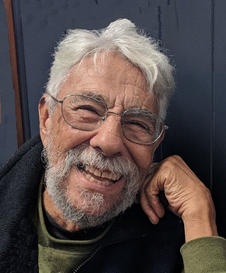 Rafael Jesús González is an international activist for human rights and social justice, a bilingual poet and writer, Poet Laureate of Berkeley, California, and, always with our deepest appreciation, a frequent contributor to Somos en escrito. © Rafael Jesús González 2020. Poems by Carlota Caulfield from her book Los juguetes de Bertrand / Bertrand’s ToysReconocimiento Hacía bocetos. Aquí y allá una palabra. Después todo fue simple, un fuego interior que lo consumió de golpe. Al poco tiempo, un exilio impuesto. Después un cambio de fotografías y un borrón en la fecha de nacimiento. Bordes geográficos desvaneciéndose y confundidos en garabatos infantiles, y voces, voces infinitas en asedio. Esperas. Reconstruyes tu perfil y tu acento, vuelves a entrar en tu pasado, permaneces en uno de sus rincones, recorres los barrios de sus excesos, y nunca eres un huésped inoportuno, eso nunca te lo perdonarías. Recognition He made sketches. Here and there a word. Later on it was all-simple: an inner fire gobbled him up. A little later, an imposed exile, Later on, different photographs and a blotch over his birthdate. Geographic lines faded and interchanged over infantile scribbles, and voices, infinite voices laying siege. You wait. You redesign your profile and your accent, you reach the past, you settle into one of its corners, you stroll the neighborhood of your excesses, and you're not an inopportune guest, you'd never forgive yourself that. El oratorio de Aurelia La primera mirada es una mano en movimiento. Una gaveta se abre, otra se cierra, y así combinaciones imposibles del cuerpo. Un trapecio de lo familiar, del perchero y la colcha de la abuela. Cortinas donde se esconde la niñez, esas cortinas rojas del teatro, y el show del circo imaginario para mayores de ocho años. Sabiduría del acróbata y del pintor en su gotear de rojos y esos verdes y esos amarillos. Casi se pueden tocar. Entonces, los waltzes pirotécnicos, los abrigos y vestidos con vida propia, la música de acordeón, tangojazz, y trombón, eso parece. Y cuando todo se ha vuelto un Magritte, el timbre de un móvil desata una pelea violenta entre los otros, audiencia de marionetas crueles. Fin de la primera parte. Aurelia's Oratorio At first glance, it's a hand in motion. A drawer opens, another closes, and thereby impossible body combinations. A trapeze of the familiar, of the hanger and Grandma's bedspread. Curtains where childhood hides, those red curtains of the theater, and the show of the imaginary circus for those over eight. Wisdom of the acrobat and the painter in his splashing of reds and those greens and those yellows. You can almost touch them. Then the pyrotechnic waltzes, the coats and dresses coming to life, accordion music, tangojazz and trombone, that's what it's like. And when everything has turned into a Magritte, the ring of a cellphone unleashes a violent fight among the others, audience of cruel marionettes. End of part one. The poem “Aurélia’s Oratorio” alludes to the theater piece of the same name, a combination of a magic surreal show and acrobatics created and directed by Victoria Thierrée Chaplin that her daughter Aurélia Thierrée performs with extraordinary mastery and grace in theaters around the world. Nueve poemas para Charlotte 1. Agrietadas de pasión, las manos del titiritero descansan. Sólo en un pestañear, las marionetas se mueven y se confunden, y se enredan en sus cuerdas. Conmoción de un instante. 2. Dentro del armario, la sombra de un antiguo Pinocchio es una marca perenne. Así se hace la memoria y eso es lo mejor de todo, dejar que el corazón se fragmente con el tacto. Lo inexistente ha dejado un recuento. 3. Sus labios en una taza de té. Un sabor verde de Himalayas se confunde con la vasija terracota curtida por el uso. Capas y capas de residuos, testigos impregnados en el barro. Pone a un lado su diario. Mapa Mundi. 4. Su nombre reaparece en diferentes formas. En caligrafía es trazo llamado Tao. Su efímera inscripción lleva la espiritualidad de los sentidos. Digo y cuento, aunque raras veces es también toque de inscripción propia. 5. Puertas hinchadas de aguas a destiempo, como si la torrencial lluvia se hubiese vuelto un dulce y pegajozo delirio mientras observas las vestiduras extraviadas de la madera. En la ventana, una silente figura vacila. Y de pronto, el espacio de sonidos se confunde con grises, blancos y verdes. Lo de afuera entra y roza tus manos. 6. Ella, la que eres tú en ciertos días, deja un rastro de bruma y se reclina sobre varios senderos. Atrapar lo inasible se vuelve aquí furor y apatía. 7. Pasas bordeando voces. No quieres quedarte en la orilla de la muerte. Como un animal ebrio de miedo te enroscas hasta que la lluvia cese. Palabras en desorden. Trabalenguas. 8. Tú misma eres una abstracción. Todos los remedios disolviéndose. Noches de insomnio cercanas a la locura. Así tu cuerpo. Las treguas conjuradas. La parálisis un abismo de telas. La corrugada pesantez de tu espalda mancillada por bloques terapeúticos. 9. Mientras intocable hasta en la palabra, la presión de dedos y el aire denso de lugar a lugar, a tus labios coarteados les frotas unas gotas de miel y los pules como si fueran un desgarrón purpúreo. Así tus huesos, nervaduras de sombras chinescas lanzadas al piso. Tú. Nine Poems for Charlotte 1. Cracked by passion, the puppeteer’s hands rest. With only a blink, the marionettes move and are baffled, and get tangled in their cords. The commotion of an instant. 2. Inside the wardrobe, the shadow of an ancient Pinocchio is a perennial imprint. This is how memory is made and that’s the best of it all, to allow the heart into pieces if touched. The non-existent has left a trace. 3. Her lips sipping a cup of tea. A Himalayas’ green flavor is fused with the terracotta cup stained by use. Residual layers and layers, witnesses impregnated in the clay. She puts aside her diary. Mapa Mundi. 4. Her name reappears in different ways. In calligraphy it’s a pen stroke called Tao. Its ephemeral inscription carries the spirituality of the senses. I say and tell, although rarely it’s also a touch of self-inscription. 5. Doors swollen by untimely waters, as if the torrential rain had become a sweet and clinging frenzy while you observes the lost garments of the wood. In the window, a silent figure hesitates. And suddenly, the space of sounds blends with grays, whites and greens. The outside comes in and grazes your hands. 6. She, the one you are on certain days, leaves a trace of mist and bends, over several paths. Here to grasp the unreachable is fury and apathy. 7. You stroll around voices. Not wanting to remain on the verge of death. Like an animal drunk with fear you huddle until the rain stops. Words in disorder. Tongue Twisters. 8. You are yourself an abstraction. All solutions are dissolving. Nights of insomnia close to madness. So is your body. Conjured ceasefires. Paralysis, an abyss of cloths. The corrugated and heaviness of your back sullied by therapeutic blocks. 9. While untouchable even by words, the pressure of fingers and the misty air from place to place, onto your cracked lips you rub some drops of honey and you polish them like a purplish tear. And your bones, too, Chinese shadows nervures tossed on the floor. You. Bosques de Bélgica Voz suelta. Pura respiración. Labios de breves heridas. Después, un tañido. Boca sobre el metal. Voz hueca y los labios un pico abierto de pájaro. El aire es murmullos, rumores, silbidos, y marca permanente en la cámara interio. Rapidez del movimiento de la vara, privilegio de una mano. La mano tiene forma de U. Es una U. En el cielo de Berkeley hay pocas nubes, decías lentamente. Cierto, el aerófono es latón ligero, tríptico en un cuadro donde un trombón de vara parece pájaro en vuelo y alas de ángel. ¿Quién recuerda el nombre del cuadro? ¿Cómo se llamaba el pintor? Belgian Forests Voice unleashed. Pure breathing. Lips of brief wounds. Then, a note. Mouth to metal. Hollow voice and lips a bird's open beak. The air murmurs, whispers, whistles, and permanently marks the inner chamber. Rapidity of the valve's movement privilege of a hand. The hand is U shaped. It’s a U. In the Berkeley sky, here are few clouds, you were saying slowly. True, the aerophone is a light brass triptych in a painting where a valved trombone looks like a bird in flight, and angel wings. Who remembers what the painting is called? What was the painter's name? 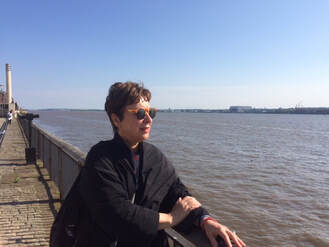 Photo by David Summer at the Mersey in Liverpool, UK Photo by David Summer at the Mersey in Liverpool, UK Carlota Caulfield is a Cuban-born American poet, writer, translator and literary critic. She has published extensively in English and Spanish in the United States, Latin America and Europe. Her most recent poetry books are Cuaderno Neumeister / The Neumeister Notebook (2016) and Los juguetes de Bertrand / Bertrand’s Toys (2019). She is the recipient of several awards, among them The International Poetry Prize Dulce María Loynaz and The Ultimo Novecento, Poets of the World. Caulfield has also published widely on Argentine poet Alejandra Pizarnik, as well as on other Latin American and Latinx poets, including Magali Alabau and Juana Rosa Pita. She is the co-editor of A Companion to US Latino Literatures (2012 &2014) and Barcelona, Visual Culture, Space & Power (2012 & 2014). She is Professor of Spanish and Spanish American Studies at Mills College, Oakland, California. Mary G. Berg, a Resident Scholar at the Women’s Studies Research Center at Brandeis University, Boston, Massachusetts, has translated poetry by Juan Ramón Jiménez, Clara Roderos, Marjorie Agosín and Carlota Caulfield and novels by Martha Rivera (I’ve Forgotten Your Name), Laura Riesco (Ximena at the Crossroads), Libertad Demitropulos (River of Sorrows). Her most recent translations are of collections of stories by Olga Orozco and Laidi Fernández de Juan.
New Poems by Ivan ArgüellesTAMAZUNCHALE antes de abrir la demencia para descubrir palabra tras palabra que no tiene sentido diccionario de pulmones ! pulgas y rascacielos ! para mejor comprender lo que pasa dentro del ladrillo rojo al margen de la calle que nos lleva al sur donde los muertos tratan de olvidar lo que pasó ayer cuando la gran máquina de nubes y sonidos se acostó al lado del mar que sufre tantas camas inexplicables y sin eco y ahora dime que quieres con tus ojos apagados y tu mente como sirena de ulises llamando a todos los náufragos que la ambulancia está lista a partir ! ya me voy hacia la mejor tortillera que hay para besarla en su coma de vidas paralelas y entonces con una tristeza mundial seguiré caminando un brazo mas famoso que el otro una oreja de piedra y otra en ninguna parte para qué poner en dos el uno ? multiplicar significa morir ! 07-21-20 TEOCALLI for Joe who appeared yesterday morning for a fraction of an instant in the doorway standing in the light of the morning sun confused with radiance and dazzling the stanzas of an unwritten poem shift in the monumental distances of air crane-feathered shafts rotate like minds ablaze in the pyramidal distances of sky stone built on stone stepping to heaven solar flares like tongues speaking loud the destructions of cloud and thunder and ever deeper the effects of amnesia rain drowning cities of fine dust citadels of bone and tumult havoc of wheels spun out of control bringing down all ten directions and mountains reared overnight to mark off the western margin where the archaic sea darkens rushing to mirror itself in a dream of feathers and the twins up and down they go tracing each periphery of rock and grass measuring how far it is to the lunar aleph fading like dissolved aspirin at dawn what fills the ear at such an early hour if not the Sanskrit parrot reciting chronologies and adamantine dynasties names none can rightly recall inscribed on the reverse of coins or obliterated by a mere thumb on porous sandstone libraries ! the tomb of words and to speak the labyrinthine dialects communing with deities of the Unseen and Unheard pages torn at random from the codex depicting the origins of divine Chaos night ! splendors of ink in canyons where the dead revive use of their hands such a morning atop the great Teocalli converting sums of air into breathless voice hail all the heights and renown of fire ! we have come down the Panamerican visiting each of the summers of 1953 and talking backwards to mummified relatives wrapped in serapes of liquid gold we will never reach tomorrow for sure the Nymph death will take one of us before the prophesy can be fulfilled every day is this single bright moment standing like phantom pharaohs immobile in the pellucid movie film of memory you are me and I am you ! there is grass and maps strewn all over the lawn and avenues that stretch as far back as the first city carved out of the womb ten minutes apart the matching Teocallis that cast no shadow only black light ! 06-11-20 canción del parque chapultepec cronología del aire ! arquitectura de las nubes ! soy de poco valor que lástima ! las abejas en sus columnas verticales de azul incendiado chupando chupando los huesos de la hierba dormida soy azteca soy caldeo soy de mucho valor sierras de sueño blanco que veo nomás cuando estoy nadando en mi césped de memorias todo verde desde el hombro izquierdo de césar vallejo hasta la rodilla derecha de garcía lorca acumulando los dos las muchas muertes de la luz aunque vivimos como momias en Tenochtitlan apenas sufriendo el tránsito de los motores de las plumas yo lo único que soy es la luna chafada y transparente como aspirina a mediodía y hay mares invisibles que suben los pirámides de la frontera pistolas con ojos ! ahi viene la bala ! dame mi caballo corrompido yo soy peruano el último dios soy el mero dios de la basura hieroglífica de chapultepec fumando como nunca las chispas baratas de las olas que han venido a ahogar el estado de california poco a poco y a menudo con sus pronombres y hierro de lenguas mas muertas que el sol negro tapadera y tumba del fuego silencioso de mis pasos en el jardín unitario de la duda y por eso digo yo soy 06-17-20 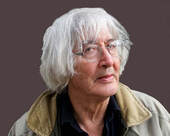 Ivan Argüelles is an American innovative poet whose work moves from early Beat and surrealist-influenced forms to later epic-length poems. He received the Poetry Society of America’s William Carlos Williams Award in 1989 as well as the Before Columbus Foundation’s American Book Award in 2010. In 2013, Argüelles received the Before Columbus Foundation’s Lifetime Achievement Award. For Argüelles the turning point came with his discovery of the poetry of Philip Lamantia. Argüelles writes, “Lamantia’s mad, Beat-tinged American idiom surrealism had a very strong impact on me. Both intellectual and uninhibited, this was the dose for me.” While Argüelles’s early writings were rooted in neo-Beat bohemianism, surrealism, and Chicano culture, in the nineties he developed longer, epic-length forms rooted in Pound’s Cantos and Joyce’s Finnegans Wake. He eventually returned, after the first decade of the new millennium, to shorter, often elegiac works exemplary of Romantic Modernism. Ars Poetica is a sequence of exquisitely-honed short poems that range widely, though many mourn the death of the poet’s celebrated brother, José. Two Poems: |
| Karen Valencia is a first generation Mexican American poet born and raised on Chicago’s Southwest side. A Northwestern graduate, Karen has appeared in Huizache, The Magazine for Latino Literature (2014) and most recently in the Literary Issue of Southside Weekly (2019). Karen is also a fashion stylist, model, DJ and co-creator of DESMADRE, a Latinx fashion styling collective. To see more of her work you can visit her website (karenvalencia.com) and to check out her other projects, follow her on Instagram (@karennoid). |
Believing in equality for all
A tribute on Memorial Day 2019
Patriotismo – Que Es?
By San Juana Guillermo
and fight for our country in order to prove our patriotismo?
Do we have to risk our lives against soldados we know nothing about,
except that they, too, are fighting to defend their country?
Will this war change the world? We ask of all the wars.
Nuestros padres, nuestras parejas, los hijos, los hermanos. Tienen que
sufrir our absence while we prove our patriotismo?
El patriotismo no nomas se demuestra en la Guerra, en una tierra extraña,
contra soldados que no conocemos, or that we personally have
nothing against.
Patriotismo se demuestra when we served in the military
even in the face of discrimination.
When we are only allowed to scrub the deck or paint the ship.
O, trabajar en la cocina peeling the potatoes y lavando los trastes.
We went and defended our country, in spite of this.
when our troops were separated by color, like when you do the laundry.
One war receiving 45 sons from Hero Street, Illinois,
sending them to the Philippines because of their Spanish tongues
only to be silenced when they returned to their homes.
Patriotismo is watching your child going off to war
and your heart is heavy and your spirit cries because
it does not know if there will be a reunion embrace.
The neighborhood of Edgewood in San Antonio losing 54 to another war,
with 2 of them still M.I.A., 10 of them graduating in the same year from
the same high school.
Yet, “We’re a very patriotic family,” said Gloria Carson, sister to one of the 54.
Many of our returning soldados never honored until after death
Or, the families of those we lost in the battles, esperando años para recibir
el Honor to be bestowed on their loved ones.
Patriotismo is knowing you have to drink from a different water fountain
and enter through the back door.
Yet, we do not hesitate to take up arms to defend la poquita libertad
que los permiten.
“Foreigners in our land” quizas, but it is our land.
Y a pesar de todo, we are orgullosos of our Patriotismo.
Patriotismo is not just defending and sacrificing in times of war.
Patriotismo is forming The American GI Forum, to serve and assist
the needs of our veterans and their families.
And fighting for our veterans’ rights, who are American after all.
Patriotismo is leaders like Cesar Chavez,
who fought at home and sacrificed for the dignity deserved to all.
Patriotismo is fighting in our own land upon returning home,
not with weapons of mass destruction
but with weapons of words and fearless leadership.
Patriotismo is encouraging people to vote,
organizing them as a community, empowered with the knowledge
that they are all capable of accomplishing the impossible
regardless of circumstances.
Patriotismo is Believing in equality for all and achieving
civil and labor rights with nonviolence.
Marching so that men, women and children have access to decent wages,
education, decent housing and food to eat.
Patriotism is holding the country you sacrificed for, accountable to fulfill
its promise of equality and freedom for all people.
Patriotism is collectively believing what Cesar Chavez once said:
Once social change begins, it cannot be reversed.
You cannot uneducate the person who has learned to read.
You cannot humiliate the person who feels pride.
You cannot oppress the people who are not afraid anymore.”
Patriotism cannot be taken away because we ARE this Tierra and Patriotismo is US.
R i n c o n c i t o es un
i “rincón pequeño” especial para escritos cortos:
n un poema, un cuento, una memoria, ficción de repente, y otros.
c
o Un par de poemas / A pair of poems
n
c By José Clemente Carreño Medina
i English translations by Toshiya Kamei
t
o
Delirio
–Erasmo de Rotterdan, Elogio de la locura
tinto
nuestra palabra caduca de
tiempo
nuestro presente
conjugado
nuestro trozo de
eternidad…
Delirium
–Erasmus of Rotterdam, The Praise of Folly
wine
our word goes out of
date
our conjugated
present
our piece of
eternity...
Muerte nocturna
pasos de tus huellas
Toco el viento con el
tacto de tu boca
Respiro a muerte en
cada palabra escrita
Bebo el vaso pleno
de tu ausencia
Vivo día a día una
muerte nueva
Muero noche a noche en
cada verso recién nacido...
Nocturnal Death
track of your footsteps
I feel the wind with the
touch of your lips
I breathe death in
every written word
I drink a glass full
of your absence
Every day I live a
new death
every day
Every night I die in
every newborn verse...
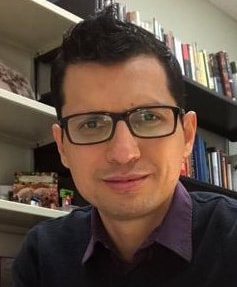
For Caraza, poetry, like the Greek and Roman gods of antiquity, is half-deity and half-force of nature. She communes with it—or, rather, it chooses to commune with her, and she wholeheartedly surrenders to its voice.
—Hector Luis Alamo
Un extracto de / An excerpt from Sin preámbulos / Without Preamble
Por / By Xánath Caraza
Traducido al inglés por Sandra Kingery / Translated into English by Sandra Kingery
Sin preámbulos
sin preámbulos
se filtra la luz
en las grietas
se escurre el delirio
en los pétalos
saetas de color rompen
la superficie que tocan
tiñe aurora los recuerdos
polícroma melodía
violeta fue la luz
se desvanece
con la brisa
ráfaga de fuego
tiempo violeta
delinea la partida
tic-tac, tic-tac
tic-tac, tic-tac
Violet is the morning
without preamble
light filtering
through crevasses
delirium sliding
down petals
colored arrows broaching
the surfaces they touch
polychrome melody
tinting memories dawn
violet was the light
it dissipates
with the breeze
bursts of flame
violet time
delineates the departure
tick-tock, tick-tock
tick-tock, tick-tock
Refulgente oleaje
Nacarada luz
golpeas la intimidad
perforas la soledad.
Se arrastran luminosos rayos
en los pisos de piedra
canto lunar.
Inhalo el opalescente aroma
y descubro las manos
que fijan las letras.
Las sílabas intersecan
con los recuerdos
refulgente oleaje.
En el horizonte
la rutina invade
las páginas.
Las cadenas se abren.
Una lluvia de tinta
inunda el papel.
Glistening Waves
Pearly light
you strike privacy
puncture solitude.
Luminous rays crawl
across stone floors
lunar chorus.
I inhale opalescent aromas
and discover the hands
that deploy the alphabet.
Syllables intersect
with memories
glistening waves.
On the horizon
routine invades
the pages.
Chains open.
A shower of ink
inundates the paper.
Es la lluvia saturada de perlas
Sólo es la lluvia
que perfora el mar.
Voz de fuego.
Llevo enredado
un collar de perlas
traídas de donde
nace el trueno.
Voz de agua.
Los tatuajes engañan
seducen las páginas.
Iguanas de oscura tinta
zurcidas en el papel.
Voz dolorosa.
El viento ulula llanto
es la lluvia saturada de perlas.
Only the rain
pierces the sea.
Voice of fire.
I wear twisted
a necklace of pearls
obtained from where
the thunder is born.
Voice of water.
Tattoos deceive
pages seduce.
Iguanas of dark ink
mended on the page.
Dolorous voice.
The wind howls sobs
it is rain saturated with pearls.
Cenizas
Entierro las manos en el barro.
Guarda mi esencia.
El agua me rodea.
Isla de palabras sembrada de luz
donde las sílabas brotan.
Dadora de versos.
Ritmos luminosos en la montaña
sombras lunares dan vida
a mi silueta en esta isla.
Aquí enterré mi corazón.
Ulula, viento, espárceme.
Cenizas lunares renacen.
Ashes
I bury my hands in mud.
It preserves my essence.
Water surrounds me.
Island of words sown with light
where syllables sprout.
Giver of verses.
Luminous rhythms on the mountain
lunar shadows give life
to my silhouette on this island.
Here I buried my heart.
Howl, wind, scatter me.
Lunar ashes are reborn.
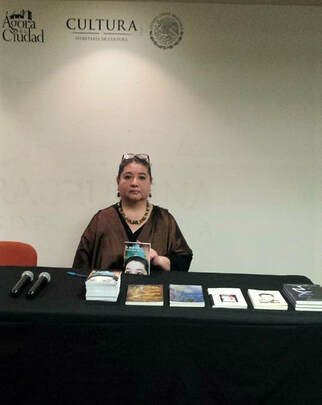
Xánath Caraza is a traveler, educator, poet, and short story writer. She teaches at the University of Missouri-Kansas City. She writes for Seattle Escribe, La Bloga, The Smithsonian Latino Center, and Revista Literaria Monolito. She is Writer-in-Residence at Westchester Community College, New York since 2016. In 2018 for the International Latino Book Awards she received First Place for Lágrimaroja for “Best Book of Poetry in Spanish by One Author” and First Place for Sin preámbulos / Without Preamble for “Best Book of Bilingual Poetry by One Author.” Her book of poetry Syllables of Wind/ Sílabas de viento received the 2015 International Book Award for Poetry. It also received Honorable Mention for best book of Poetry in Spanish in the 2015 International Latino Book Awards. Caraza was the recipient of the 2014 Beca Nebrija para Creadores, Universidad de Alcalá de Henares in Spain. She was named number one of the 2013 Top Ten Latino Authors by LatinoStories.com. Her books of verseWhere the Light is Violet, Black Ink, Ocelocíhuatl, Conjuro and her book of short fiction What the Tide Brings have won national and international recognition. Her other books of poetry are Hudson, Le sillabe del vento, Noche de colibríes, Corazón pintado, and her second short story collection, Metztli. Caraza has been translated into English, Italian, and Greek; and partially translated into Nahuatl, Portuguese, Hindi, Turkish, and Rumanian.
Archives
February 2024
July 2023
June 2023
May 2023
March 2023
February 2023
January 2023
November 2022
October 2022
September 2022
August 2022
May 2022
April 2022
March 2022
February 2022
January 2022
November 2021
October 2021
September 2021
August 2021
July 2021
June 2021
May 2021
March 2021
January 2021
December 2020
November 2020
October 2020
September 2020
August 2020
July 2020
June 2020
May 2020
April 2020
March 2020
February 2020
January 2020
November 2019
October 2019
September 2019
August 2019
July 2019
June 2019
May 2019
April 2019
March 2019
February 2019
January 2019
November 2018
September 2018
August 2018
July 2018
May 2018
April 2018
March 2018
February 2018
March 2017
January 2017
May 2016
February 2010
Categories
All
Archive
Argentina
Bilingüe
Book
Book Excerpt
Book Review
Boricua
California
Caribbean
Central American
Cesar Chavez
Chicano
Chicano/a/x
Chumash
Chupacabra
Círculo
Colombiana
Colombian American
Colonialism
Cuban American
Culture
Current Events
Death
Debut
Dia De Los Muertos
Diaspora
Dominican American
Dreams
East Harlem
Ecology / Environment
El Salvador
Emerging Writer
English
Excerpt
Family
Farmworker Rights / Agricultural Work / Labor Rights Issues
Flashback
Floricanto
Food
History
Identity
Immigration
Imperialism
Indigenous
Indigenous / American Indian / Native American / First Nations / First People
Interview
Language
Latin America
Love
Mature
Memoir
Memory
Mestizaje
Mexican American
Mexico
Nahuatl
Nicaraguan-diaspora
Nicaraguan-diaspora
Ofrenda
Patriarchy
Performance
Peruvian American
Poesia
Poesía
Poesía
Poet Laureate
Poetry
Prose Poetry
Puerto Rican Disapora
Puerto Rico
Racism
Review
Salvadoran
Social Justice
Southwest
Spanish
Spanish And English
Surrealism
Texas
Translation
Travel
Ulvalde
Visual Poetry
War
Women
Young-writers
Donate and Make Literature Happen
is published by the Somos En Escrito Literary Foundation,
a 501 (c) (3) non-profit, tax-exempt corporation. EIN 81-3162209



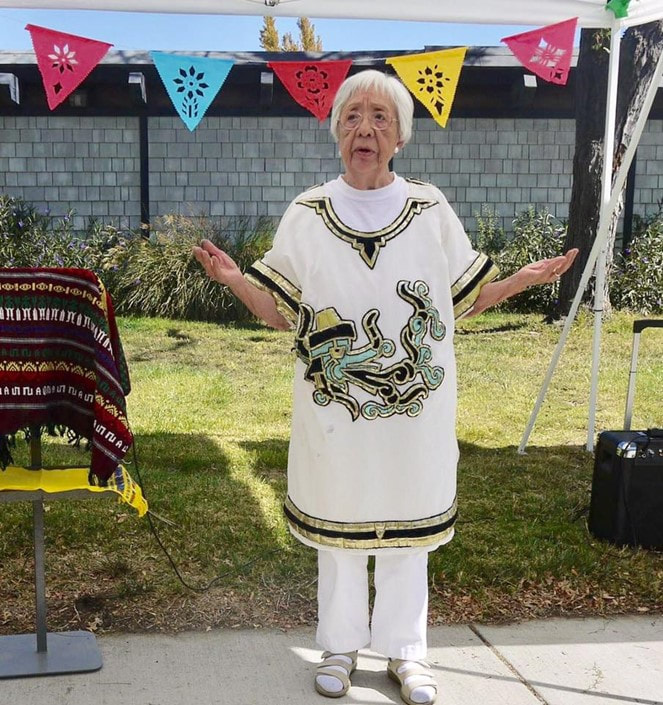

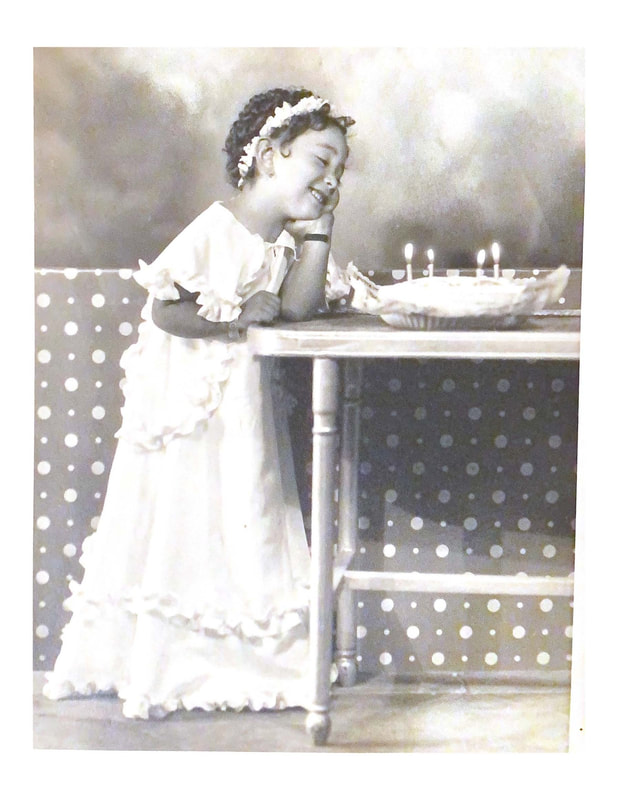


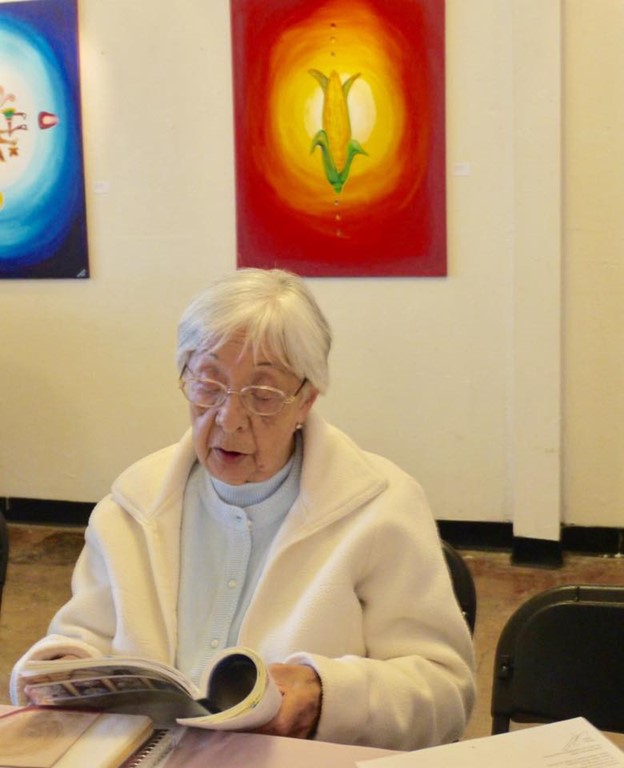
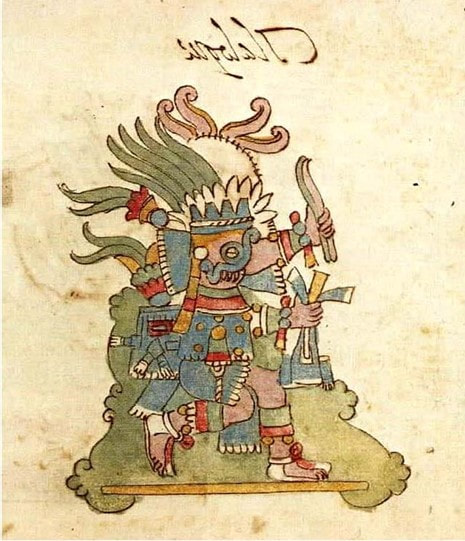
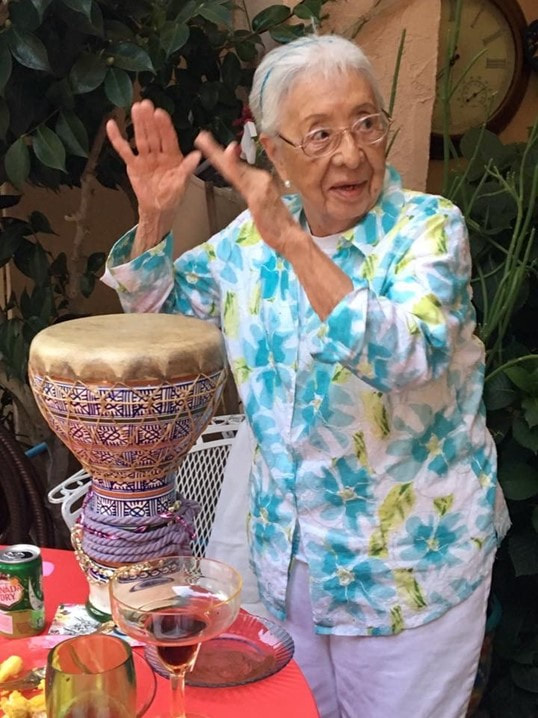
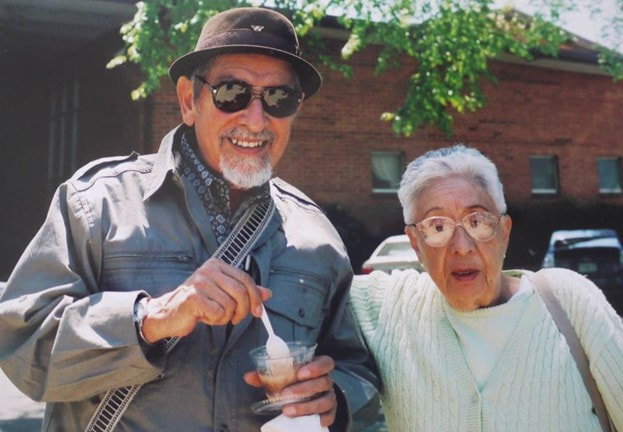
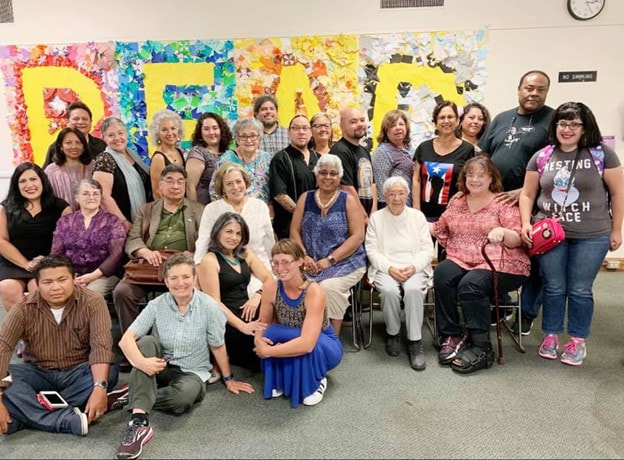
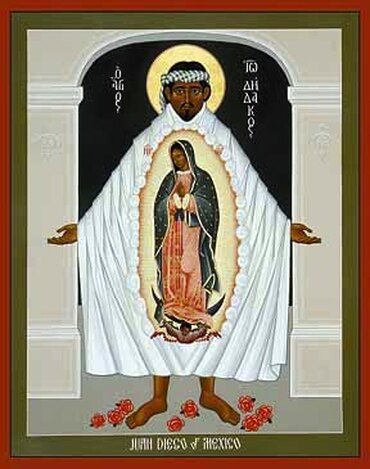
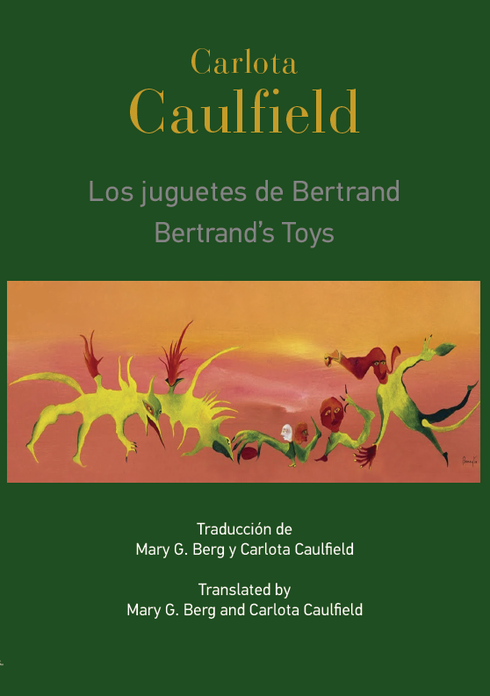
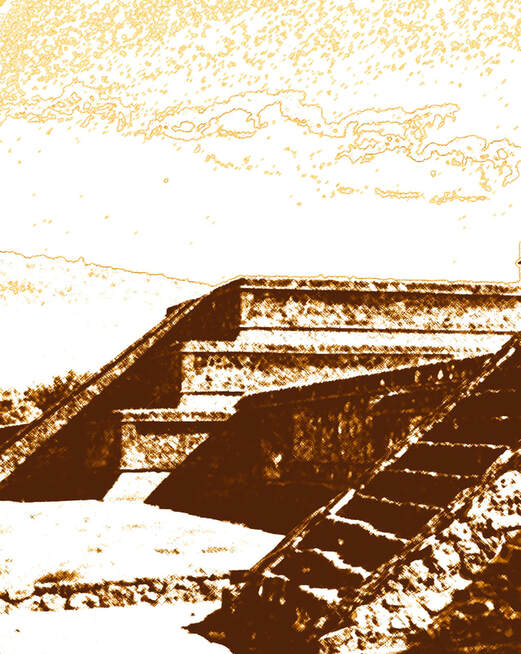

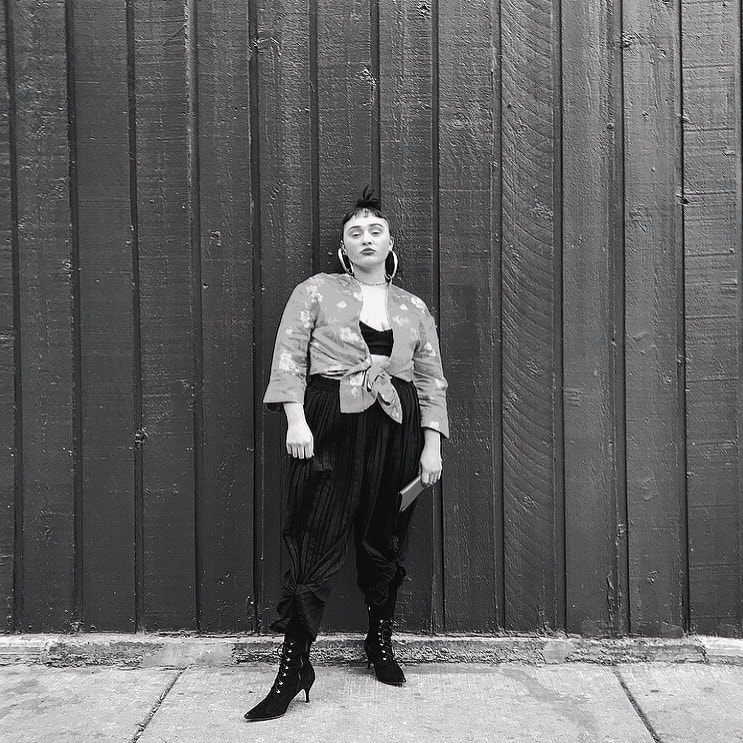


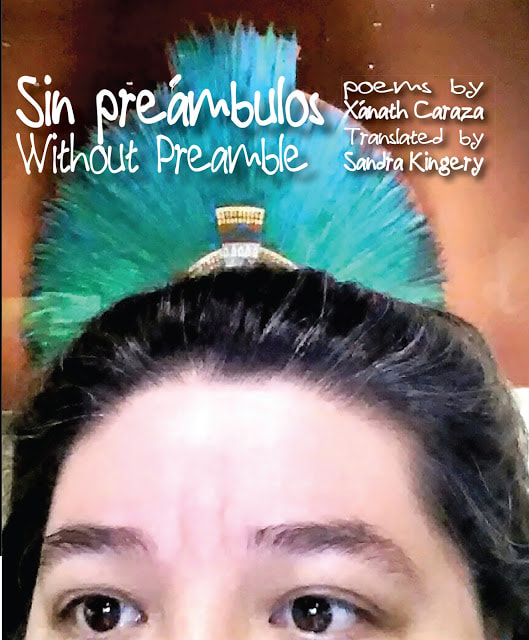
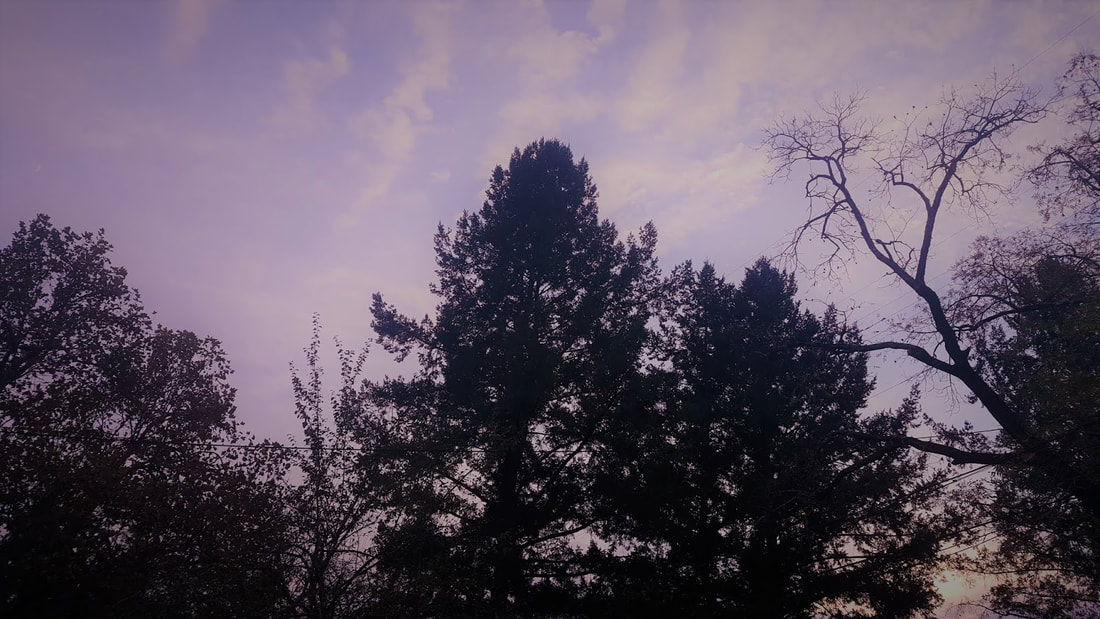

 RSS Feed
RSS Feed